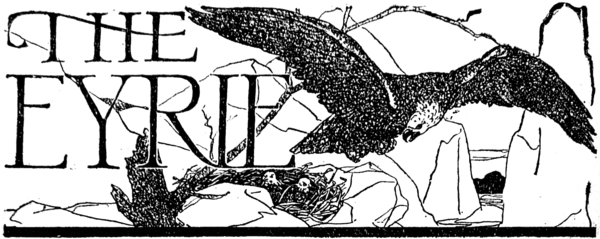
What constitutes a "weird tale"? This question is answered so clearly and succinctly in a personal letter to the editor from H. P. Lovecraft, author of The Call of Cthulhu in this issue, that we can not forebear quoting him, although the letter is really an explanation of his own stories rather than a general discussion of the "weird tale."
"All my tales are based on the fundamental premise that common human laws and interests and emotions have no validity or significance in the vast cosmos-at-large," writes Mr. Lovecraft. "To me there is nothing but puerility in a tale in which the human form—and the local human passions and conditions and standards—are depicted as native to other worlds or other universes. To achieve the essence of real externality, whether of time or space or dimension, one must forget that such things as organic life, good and evil, love and hate, and all such local attributes of a negligible and temporary race called mankind, have any existence at all. Only the human senses and characters have human qualities. These must be handled with unsparing realism (not catchpenny romanticism), but when we cross the line to the boundless and hideous unknown—the shadow-haunted Outside—we must remember to leave our humanity and terrestrialism at the threshold.
"If I were writing an 'interplanetary' tale it would deal with beings organized very differently from mundane mammalia, and obeying motives wholly alien to anything we know upon Earth—the exact degree of alienage depending, of course, on the scene of the tale; whether laid in the solar system, or the utterly unplumbed gulfs still farther out—the nameless vortices of never-dreamed-of strangeness, where form and symmetry, light and heat, even matter and energy themselves, may be unthinkably metamorphosed or totally wanting. I have merely got at the edge of this in 'Cthulhu,' where I have been careful to avoid terrestrialism in the few linguistic and nomenclatural specimens from Outside which I present. All very well—but will the readers stand for it? That’s all they're likely to get from me in the future—except when I deal with definitely terrestrial scenes."
